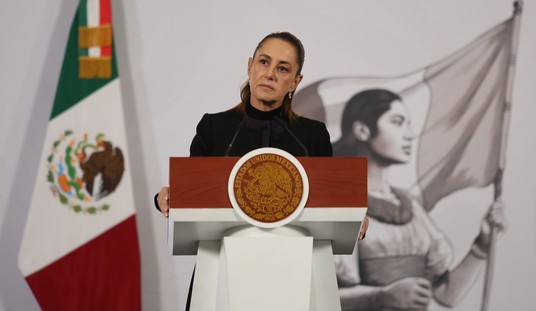While all attention was focused on the Democrats’ impeachment star chamber in the House Intel Committee this week, we learned that a new DoJ OIG report was released. The title is, “Audit of the Federal Bureau of Investigation’s Management of its Confidential Human Source Validation Processes.” Let’s look at what at what portions of the report say. I’ve also spliced some comments from intrepid independent researcher “Harold Finch” in brackets in this article to spice it up a bit:
From the Executive Summary:
Objectives: The objectives of this audit were to (1) evaluate the FBI’s Confidential Human Source (CHS) program policies and procedures, including its validation procedures; (2) assess the FBI’s policies and procedures for the use of non-attributable communications between agents and CHSs; and (3) examine the FBI’s ability to identify and fill gaps in the alignment of its CHSs with the nation’s highest priority threats and intelligence needs.
Results in Brief
We found that the FBI’s vetting process for CHSs, known as validation, did not comply with the Attorney General Guidelines. We also found deficiencies in the FBI’s long-term CHS validation reports which are relied upon by FBI and DoJ officials in determining the continued use of a CHS. Further, the FBI inadequately staffed and trained personnel conducting long-term validations and lacked an automated process to monitor its long-term CHSs. The joint DoJ-FBI committee tasked with oversight of the FBI’s CHS program did not meet its composition requirements placing an undue burden on just a few members. The committee also had a backlog of CHSs awaiting continued use determinations, potentially allowing them to operate when they should not have. The FBI also missed an opportunity to identify its non-compliance with established CHS validation requirements because it did not follow its own directives for incorporating new procedures into policy. Further, we identified issues related to the FBI’s current validation process with characteristics the FBI considers significant and its lack of policy for communicating with CHSs. Lastly, a newly proposed system designed to align its CHS base with its highest priorities will rely on ingesting data from at least one FBI system with known data quality issues.
[Harold Finch: This speaks to extremely sloppy special agents, i.e., lack of thorough documentation and trying to hide evidence from discovery. Case in point if such agents are Strzok and Pientka with Flynn FD302 lies and forgery. This leads me to believe the dishonesty and gaming of the system is widespread and a core culture problem and affects every aspect of FBI business.]
Audit Results
FBI did not comply with the AG guidelines and faces ongoing challenges in overseeing long-term CHSs
[Key statement: …they did not ensure the full scope of a long-term CHS’s operations was reviewed and FBI validation personnel told us they were discouraged from documenting conclusions and recommendations.]
Human source review committee was not composed according to the requirements and faces an ongoing backlog
[Key statement: …by not reviewing these long-term CHSs for continued use in a timely manner, some CHSs may have remained active when they should have been closed or had additional conditions placed on their continued use.]
FBI did not follow its policy implementation process when revising validation practices
FBI’s current validation process lacks adequate independent oversight and should be reengineered
[Key statement: … the FBI has not implemented adequate controls in its latest validation process, creating a risk that CHSs are not adequately scrutinized or prioritized.]
[Harold Finch: Whitey Bulger and Chris Steele, anyone? Joseph misfud? Stefan Halper? Sir Richard Dearlove? Robert Hannigan?]
FBI’s annual CHS validation report and the communication of its importance should be improved
Challenges exist in securing safeguarding CHS communications and information.
[Key statement: … we found varying practices and opinions among FBI field offices on whether government-issued cell phones were an acceptable method to communicate with a CHS.]
[Harold Finch: Field offices doing literally whatever the hell they want to? Like the Las Vegas field office? Where’s the report on the Mandalay Bay shooting? Was the shooter’s girlfriend an FBI CHS as some believe?]
[Key statement: … we found that the FBI is not ensuring its highly classified CHS reporting platform is properly safeguarded from unauthorized access, increasing the potential for unmitigated insider threat risks.]
[Harold Finch: How about Robert Hanssen? And McCabe’ history of accessing info for which he had no need to know, as well as his long-term relationship to Oleg Deripaska?]
FBI should prioritize automation of its processes to identify and fill gaps in CHS coverage
[Key statement: … we found that the FBI lacked an automated process to analyze its CHS coverage and relied on an ineffective process that was time consuming and resulted in potentially outdated information.]
—————————————————————-
Commentary about the report: the recommendations at the end of the report are pablum: improve processes, implement automated workflow tools, update policy guides, update manuals, etc. It’s almost as if the report purposely obfuscates much more serious issues, e.g., those associated with #Spygate CHSs.
[Harold Finch: This could be because those are being handled under the forthcoming OIG’s FISA abuse report and are being criminally investigated by USA Durham, an ongoing criminal case that is not yet public.]
But I digress. Here are some other tidbits from the report:
- The CIA director is the National HUMINT manager (footnote #5). Hmmm. Isn’t that interesting in the context of #Spygate and OCONUS Lures? John Brennan needs to answer questions about CHSs involved in both operations.
- The auditors checked FBI HQ and field offices in DC and Philadelphia. Were there other field offices involved with #Spygate and/or OCONUS Lures CHSs?
- I wonder which CHS this applies to?
![]()
- Note this comment about talking to another intel agency about their CHS management program. Is this a reference to the CIA and OCONUS Lures? If so, that means “game on” for USA Attorney Durham’s criminal investigation of the FBI’s 2016 counter-intel investigation:

Probably the biggest revelation in this report was that the auditors found that the FBI has major shortfalls in securing and safeguarding CHS communications and information. Have CHS’s been outed and killed as a result of the lack of security – like Whitey Bulger?
Another revelation, as interpreted by John Solomon is that the FBI’s CHS vetting process didn’t document red flags uncovered:
It turns out, according to a stinging new report by Justice Department Inspector General Michael Horowitz, that the FBI has done a poor job over the last decade vetting informants for their credibility and reliability and documenting “red flags” when warranted.
Read the rest here.
The report was disappointing, to say the least. I wanted to see something about the FBI’s use of a parallel CHS management process using the DoD’s Office of Net Assessment. That’s the entity that ran Stefan Halper’s contract. And others? Inquiring minds want to know.
[Harold Finch: I disagree. The report wasn’t sexy, but this DESTROYS Comey, McCabe and Christopher Wray.]
I’d also like to know who were Halper’s, Steele’s and Mifsud’s handlers at the FBI (and possibly at the CIA). This report does not provide insight into what the Office of Net Assessment was used for in lieu of normal FBI procedures. The auditors found that the CHS database was unsecure and accessible by unauthorized personnel. Since the #Spygate principals couldn’t have that happening, they used the Office of Net Assessment to get around normal monitoring and scrutiny.
[Harold Finch: It’s likely that the Office of Net Assessment was outside Horowitz’s swim lane, and that USA Durham is looking into that office as part of his criminal investigation since Brennan was ultimately in charge of the IC’s CHS program.]
And in fact, that is what has just been announced, as reported here.
In summary, this report was incomplete and vague in a few key areas, but it gave us a few clues as to what might be in the works from a criminal prosecution point of view. We’ll have to wait for USA John Durham’s report!
The end.













